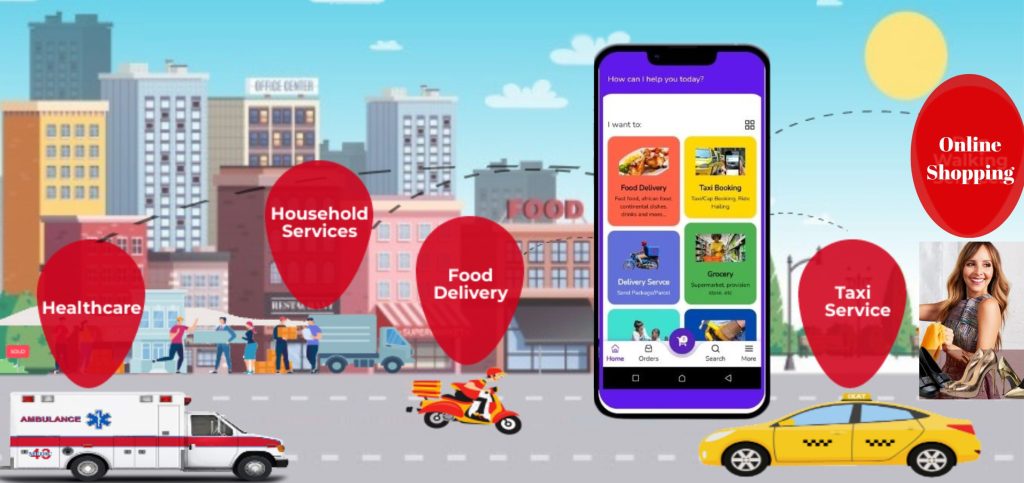Rising fuel prices have become a pressing issue in Nigeria, affecting the entire economy and posing significant challenges for small businesses in Uyo. As fuel costs continue to escalate, small businesses reliant on transportation face increasing operational expenses, threatening their viability. Understanding these challenges and exploring innovative solutions is crucial for survival in this ever-changing economic landscape.

The Economic Landscape
Fuel price trends in Nigeria have been steadily increasing, driven by factors such as global oil prices and local economic conditions. As of September 2024, fuel prices have reached unprecedented levels, causing a ripple effect across various sectors. Transportation costs have surged, significantly impacting small businesses that depend on logistics management for their operations. With higher fuel prices translating to increased delivery costs, many businesses are forced to re-evaluate their strategies to maintain profitability and provide excellent customer service.
Effects of Rising Fuel Prices on Transportation Costs and Small Businesses
For small businesses in Uyo, the implications of rising fuel prices extend beyond simple logistics. Increased transportation expenses strain budgets, forcing businesses to make tough decisions. Some companies are passing these costs onto customers, leading to potential loss of sales and customer loyalty. Additionally, supply chain management has become increasingly complex, with delays and disruptions affecting inventory management and customer satisfaction.
Challenges Faced by Small Businesses
Increased Logistics and Delivery Costs From Fuel Hike
With the rising fuel prices, logistics management has become a significant challenge for small businesses in Uyo. Delivery costs have surged, impacting overall operational budgets and profitability. Businesses relying on transportation for product delivery must now grapple with the reality of diminished margins.
Strain on Customer Service Due to Higher Transportation Expenses
Higher transportation expenses also take a toll on customer service. As businesses struggle to manage costs, customer experience can suffer. Delays in delivery times and increased prices may lead to dissatisfaction among customers, which can be detrimental to a small business’s reputation.
Impact on Supply Chains and Inventory Management Due to Rising Fuel cost
Rising fuel prices also create challenges in supply chain management. Small businesses often rely on timely deliveries of inventory to meet customer demands. However, with fuel costs rising, logistical challenges become more pronounced, affecting the timely arrival of goods and leading to stock shortages or overstock situations.
Strategies for Cost Reduction From Fuel Increase
Despite these challenges, small businesses can adopt several cost reduction strategies to navigate the transportation challenges posed by rising fuel prices.
Optimizing Delivery Routes
Technology has become an invaluable tool for small businesses seeking to optimize delivery routes. By utilizing route optimization software, businesses can minimize fuel consumption and reduce transportation costs. Efficient routing not only saves money but also enhances customer satisfaction by ensuring timely deliveries.
Bulk Purchasing
Another effective strategy is bulk purchasing. By buying supplies in larger quantities, businesses can reduce the frequency of transportation, thereby cutting down on logistics costs. This approach also allows businesses to take advantage of discounts offered by suppliers, further enhancing their cost-saving measures.
Local Sourcing
Local sourcing presents a significant opportunity for small businesses to minimize logistics costs. By obtaining materials and products from local suppliers, businesses can reduce transportation distances and expenses. This strategy not only supports the local economy but also helps small businesses maintain competitive pricing.
Innovative Solutions and Adaptations
As fuel prices continue to rise, small businesses in Uyo are embracing innovative solutions to navigate transportation challenges effectively.
Embracing E-Hailing Services: A solution to Rising Fuel Cost
One of the most significant adaptations has been the embrace of e-hailing services like Dilon. Small businesses leverage platforms like Dilon for deliveries, allowing them to access a network of reliable transportation options without the burden of managing their own fleet. This approach streamlines logistics management and can lead to significant cost savings.
If you’re a small business owner in Uyo, consider using the Dilon app for your delivery needs. It’s a smart way to optimize your logistics while keeping costs manageable. Download Dilon from the Play Store or Apple Store.
Collaboration and Carpooling
Small businesses are also exploring collaboration opportunities. By sharing resources and partnering with other businesses, they can reduce transportation costs through collective logistics solutions. Carpooling initiatives, where multiple businesses share transportation for deliveries, can lead to significant savings.
Customer Engagement
Maintaining customer loyalty is crucial, especially during challenging times. Small businesses are focusing on providing excellent service despite rising costs. Engaging with customers through loyalty programs, promotions, and transparent communication about challenges can help foster strong relationships and retain customers.
Case Studies
Highlighting successful Uyo businesses can provide valuable insights into effective strategies amid rising fuel prices.
- Case Study 1: Local Bakery A local bakery in Uyo implemented route optimization software to streamline their delivery process. As a result, they reduced delivery costs by 20%, allowing them to keep prices stable for customers.
- Case Study 2: Boutique Shop A boutique shop adopted a local sourcing strategy, significantly reducing transportation costs and ensuring timely stock replenishment. This approach not only cut costs but also enhanced their product offerings by supporting local artisans.
These businesses demonstrate that innovative solutions and adaptability are essential for survival in the face of rising fuel prices.
Conclusion
The impact of rising fuel prices on Uyo’s small businesses is significant, but resilience and innovation can pave the way for success. By adopting cost reduction strategies, embracing technology, and focusing on customer engagement, small businesses can navigate transportation challenges effectively.
If you are a small business owner, consider integrating innovative solutions like the Dilon app into your logistics management strategy. Download Dilon from the Play Store or Apple Store and explore how it can help your business thrive amidst economic pressures.